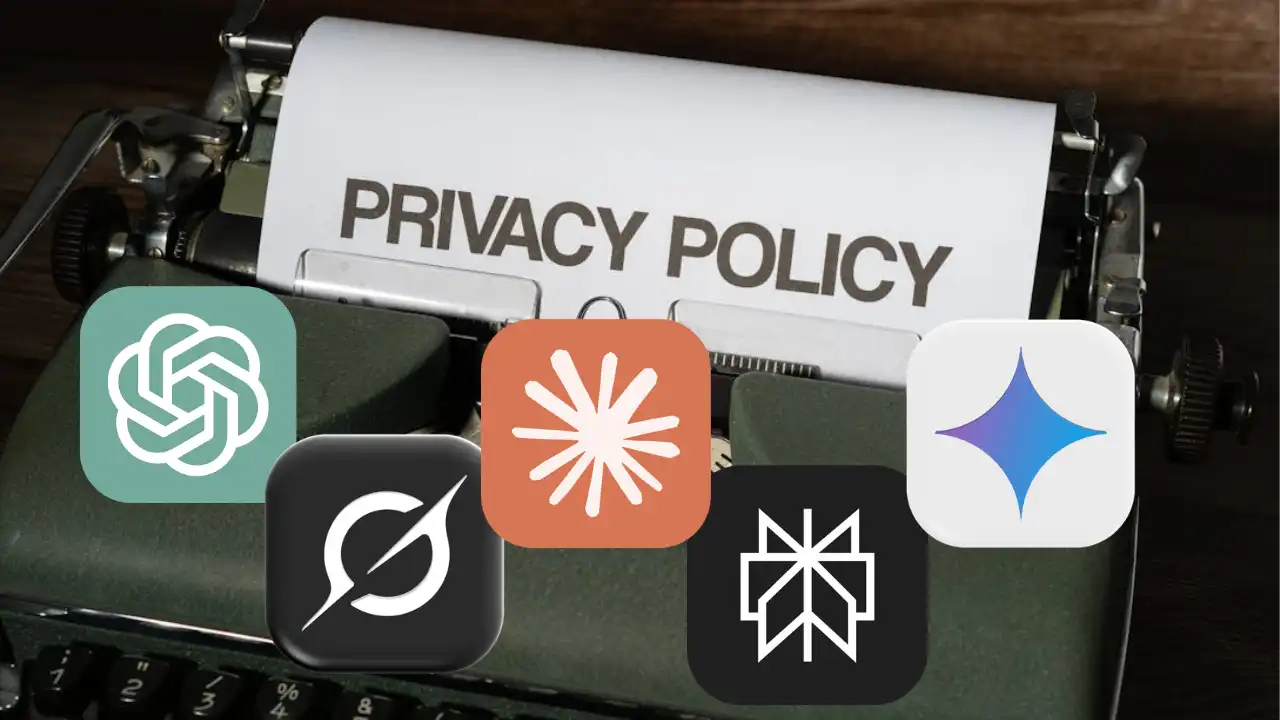In 2025, tools like Grok, ChatGPT, Claude, Perplexity, and Gemini have become everyday companions. We use them for emails, coding, research, and even creative work. But here’s the real concern—when we share prompts, files, and personal thoughts with these AI chatbots, what happens to that information?
The answer lies in their privacy policies. Each company handles AI training differently, offering various levels of transparency and control. Let’s break down how these five leading platforms deal with user data.
Grok (xAI): User Control and Private Mode
Grok, built by xAI, is known for pulling real-time insights from X (formerly Twitter). According to its policy:
- Your prompts and chats may be used for AI training to improve language understanding and safety.
- If you use Grok via X, your posts may also feed into AI training unless you opt out.
- Good news: you have strong control options. You can disable training data use from Grok’s settings (mobile app or website) or email xAI directly.
- Grok also offers Private Chat mode, which ensures your conversations are not used for AI training.
For businesses, enterprise API terms keep customer data separate from training. Deleted data is usually removed within 30 days.
ChatGPT (OpenAI): Simple Opt-Out
OpenAI’s ChatGPT is one of the most widely used chatbots. Its privacy policy highlights:
- Your prompts, uploads, and chats can be used for AI training.
- You can easily opt out via OpenAI’s privacy portal by selecting “do not train on my content.”
- Once opted out, future data won’t be used for AI training (but past data may still be included).
- Enterprise and API customers have stricter agreements, giving them added protection.
The process is simple, but users need to take action if they want privacy.
Claude (Anthropic): From Opt-Out to Opt-In
Claude by Anthropic has been known for its safety-first design. But as of September 2025, the company changed its policy:
- By default, Claude now uses your chats for AI training unless you turn it off.
- You can disable this through a settings toggle after a popup reminder.
- Once data is used, it cannot be removed retroactively.
- Anthropic filters sensitive data and encrypts stored content, which may be kept for up to five years.
If users do not accept the new terms by September 28, 2025, they will lose access. Enterprise plans, however, remain exempt from this rule.
Perplexity AI: Transparency with an Opt-Out
Perplexity, known for combining chatbot abilities with web search and citations, states that:
- Your questions, prompts, and responses may be used for AI training.
- Emails from integrations (like Gmail) are excluded from training.
- You can opt out from the settings page or request account deletion by contacting support.
- Deleted accounts are processed within 30 days.
Enterprise customers benefit from additional protections under separate agreements.
Gemini (Google): Many Controls, but Complex Settings
Google’s Gemini is powerful but comes with a detailed and layered privacy policy:
- Chats, images, files, and even audio may be used for AI training.
- Some data may be reviewed by humans.
- Users can manage this by turning off Gemini Apps Activity in Google account settings.
- Temporary chats are not used for training unless you send feedback.
- If activity tracking is off, chats are stored only for 72 hours.
- Business and education users have different agreements under Google Workspace AI policies.
Gemini gives granular control, but the settings can feel complicated for casual users.
What You Can Do to Protect Your Data
Each platform has a different approach to AI training and user privacy. Here’s what you can do:
- Check privacy settings regularly.
- Use Private Chat modes (like in Grok) when available.
- Opt out of AI training in platforms like ChatGPT and Perplexity.
- Be cautious about what sensitive information you share.
- If using AI for business, review enterprise-level agreements for stronger protections.
Final Thoughts
AI platforms depend on user data to evolve, but you still have control over your privacy. Grok and ChatGPT make opting out simple, Claude now defaults to opt-in, Perplexity focuses on transparency, and Gemini provides detailed controls (though sometimes confusing).
As AI becomes part of daily work and personal life, it’s crucial to understand how your data fuels AI training. Stay informed, adjust your settings, and strike the right balance between using AI’s power and protecting your personal information.
